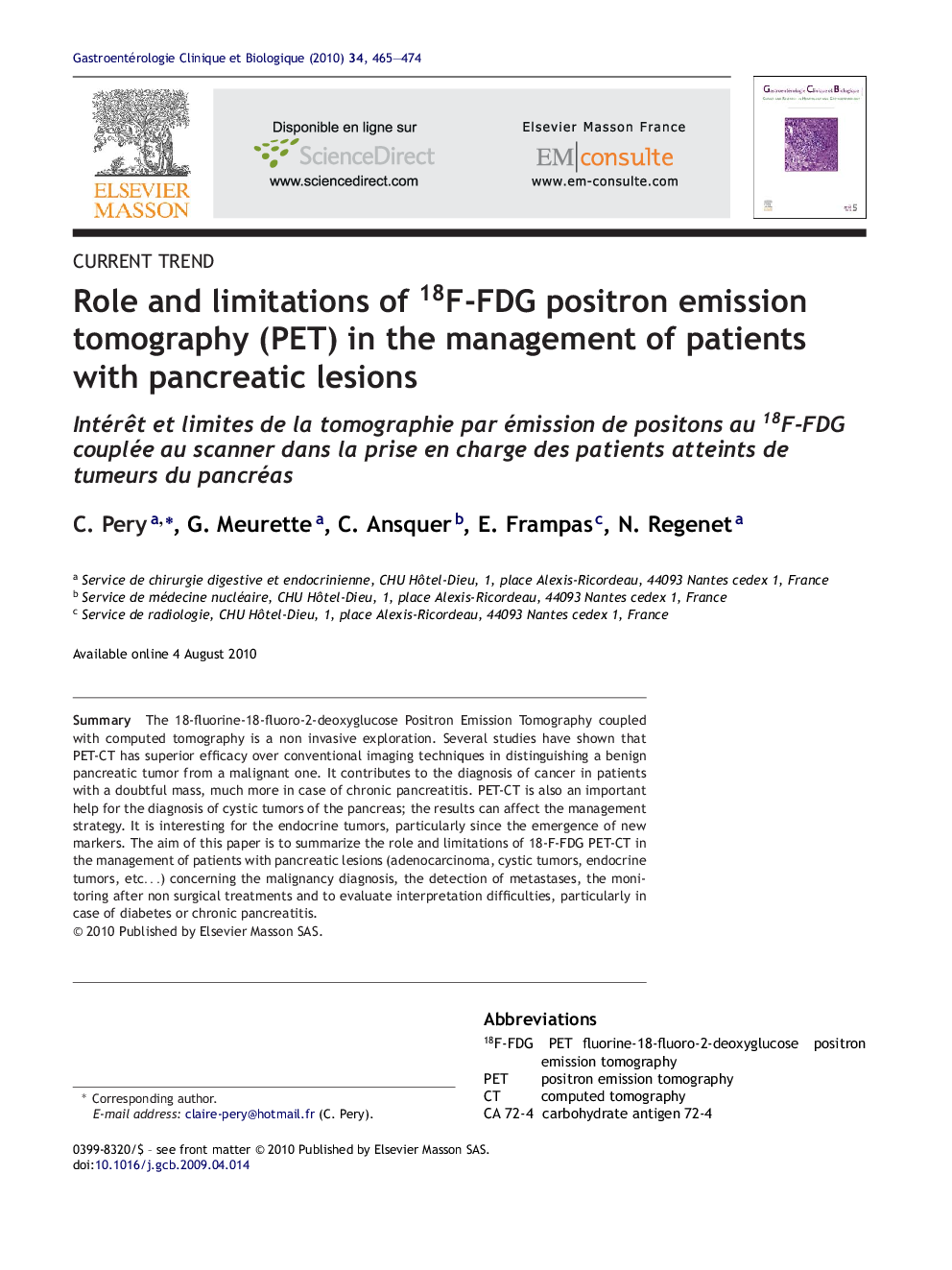| Article ID | Journal | Published Year | Pages | File Type |
|---|---|---|---|---|
| 3290284 | Gastroentérologie Clinique et Biologique | 2010 | 10 Pages |
SummaryThe 18-fluorine-18-fluoro-2-deoxyglucose Positron Emission Tomography coupled with computed tomography is a non invasive exploration. Several studies have shown that PET-CT has superior efficacy over conventional imaging techniques in distinguishing a benign pancreatic tumor from a malignant one. It contributes to the diagnosis of cancer in patients with a doubtful mass, much more in case of chronic pancreatitis. PET-CT is also an important help for the diagnosis of cystic tumors of the pancreas; the results can affect the management strategy. It is interesting for the endocrine tumors, particularly since the emergence of new markers. The aim of this paper is to summarize the role and limitations of 18-F-FDG PET-CT in the management of patients with pancreatic lesions (adenocarcinoma, cystic tumors, endocrine tumors, etc…) concerning the malignancy diagnosis, the detection of metastases, the monitoring after non surgical treatments and to evaluate interpretation difficulties, particularly in case of diabetes or chronic pancreatitis.
